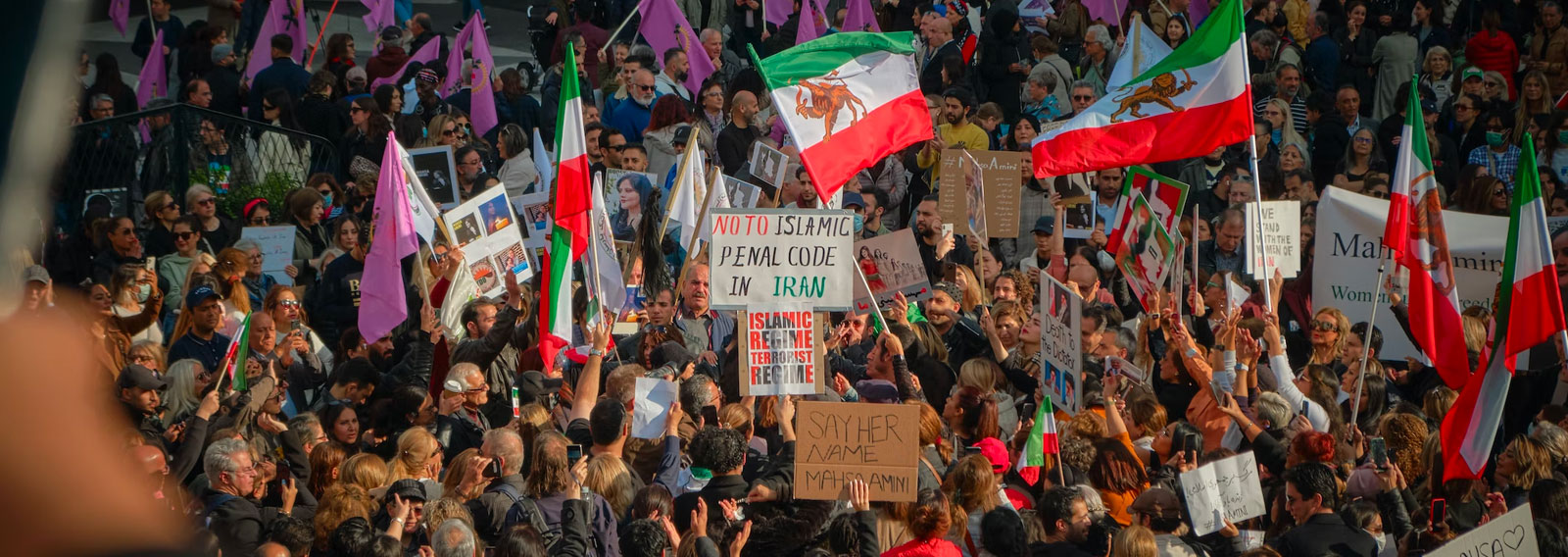Counter to viral posts on social media, Iran is not executing 15,000 protesters.
However, 15,800 are reported to have been detained and face Iran’s iron-fisted Islamic judicial system.
These include journalists, lawyers, teachers, students, and civil rights activists.
The infographic’s apparent exaggeration – shared widely by celebrities and politicians alike – appears to come from Iran’s Revolutionary Court sentencing a protester to death for alleged arson involving a government building.
Even if Iran was set to execute protesters, any mass execution would be difficult to confirm.
Iran’s Islamic leaders restrict news in the country, and according to U.S-based Iranian insider, Human Rights Activists News Agency (HRANA), ‘Iran’s judicial authorities do not publicly announce over 88% of executions.’
For context, over 344 people have been killed in massive protests rocking the Iranian government, as thousands responded to the death of Mahsa (Zhina) Amini [allegedly] at the hands of authorities in September.
Amini was arrested for ‘not observing the strict Islamic dress code.’
She then appears to have been beaten by the Gasht-e-Ershad – Iran’s Guidance Patrol; aka morality police – causing injuries to her body, which resulted in a coma, and her eventual death.
Distancing themselves from Amini’s apparent state-sanctioned murder, Iranian officials claimed the 22-year-old’s death was the result of an “underlying illness.”
Officials said Amini died of ‘multi-organ failure (M.O.F) caused by cerebral hypoxia,” brought about by ‘ineffective cardio-respiratory resuscitation in the first critical minutes’ of cardiac arrest.
According to HRANA, Amini’s lawyer, Saleh Nikbakht, rejected the COD claim as ‘baseless.’
HRANA, quoting Nikbakht said, ‘the attempt to link it with her childhood surgery or taking thyroid pills [is] nonsense.”
The ‘same surgeon,’ argued Nikbakht, ‘who performed the glandular surgery on her when she was eight, said it cannot be the cause of her death. Other neurologists have refuted this too.’
He then asked, “How is it possible that Mahsa Amini, who ‘has not had any physical issues for 15 years, suddenly has a stroke, heart, and kidney failure and loses ninety-eight percent of her vital signs?’
All after, ‘being taken into custody by the Morality Police and spending an hour and a half at their headquarters.’
Under the weight of mass protests, HRANA noted, Amini’s death is currently ‘under investigation,’ and the case has ‘yet to be filed with the courts.’
Although demonstrations continue, in an initial response to the 20-days of unrest from September through to October, HRANA described Iranian officials as ‘violently quashing’ the protests, using ‘anti-riot police and Iran’s militia force (Basij) through the use of teargas, pellets, and live ammunition.’
HRANA added, ‘Media close to Iran’s security apparatus tried to cover the protests in their own way by sending their reporters to the streets to present the news in a slanted way that is favourable to the government.’
Putting the protests into perspective, HRANA said, the protests ‘can be considered among the longest continuous protests since the inception of the Islamic Republic of Iran.’
Despite the mass arrests, Iran’s protesters have succeeded in giving their quest for a newness of life, liberty, and blind justice, momentum, and with it, the necessary global attention needed to help move Islamic Iran’s despots towards accountability before God, and the Iranian people.






















